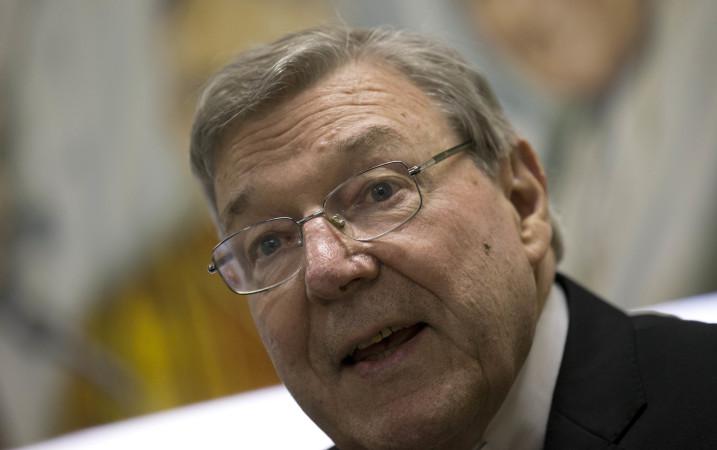|
Case for the defense of Cardinal Pell heard in Australia
By Andrew Rabel
MELBOURNE – In general, Australian media and public opinion have not been kind to Cardinal George Pell, basically turning the 75-year-old Vatican financial czar into the country’s leading symbol of child sexual abuse scandals in the Catholic Church. That campaign reached a crescendo in February, when Pell testified before a Royal Commission via video link from Rome about his time as a priest in the city of Ballarat and later as the Archbishop of Melbourne. A satirical song by a local comedian calling Pell “scum” and a “coward” went viral, while the tone of press commentary was almost unrelentingly accusatory. Less noticed, however, has been an emerging “case for the defense” in the Australian press, in some cases composed of people who’ve known Pell a long time, and who’ve been pushing back against what they see as a campaign of defamation tantamount to a public lynching. Robert Hennesy-Hawks, 74, now retired and living in the Australian state of Queensland, was a financial adviser in Ballarat at the time Pell was a priest there, and vigorously defended him. “As someone who was actually in Ballarat at the same time as Cardinal George Pell, distinct from many outspoken critics, the assertion that he ‘must have known what was going on’ is dubious,” Hawks has written. “During this period I was running a business in Ballarat and in contact with a large number of businesses, families, and most legal and accounting firms in Ballarat and surrounding areas,” Hawks said. “I had five children in the Catholic School system… and I was also serving as a Justice of the Peace, with a particular involvement with the child protection authority.” “Yet at no time was my wife or I or our children or to the best of our knowledge our friends, aware of the slightest rumour of child sexual abuse in the Ballarat area,” he said. Hennesy-Hawks also rejected the idea that Pell should have taken action in the case of a notorious abuser priest named Gerald Ridsdale, who served in Ballarat. “Pell at that time was a 28-year-old junior priest, recently returned from studying at Oxford University, not involved in parish duties, but completely immersed in his very demanding role at Aquinas College, as it transformed from a Catholic Teachers College to a University,” Hennesy-Hawks said. He insisted that later as an archbishop, Pell did take action “as soon as he had the power and authority to do so.” Andrew Bolt, an agnostic political commentator on radio and television who recently did a one-hour interview with Pell on Sky News, declared himself appalled at the way the Royal Commission seemed to presume Pell’s guilt. “A royal commission is the most powerful instrument of inquiry in our system of governance, and so must behave impeccably and responsibly at all times,” Bolt has written. “In this case, it is clear that victims involved have suffered considerable trauma and distress, and because of their suffering many have expressed a desire to see someone suffer in return as an attainment of justice.” “This is an understandable human reaction,” Bolt wrote, “but it is not a basis on which to conduct a royal commission.” In another piece, Bolt called Pell “the victim of one of the most vicious witch hunts to disgrace this country,” describing the process as “shameful, disgusting, and frightening.” Kenneth Wiltshire, a professor of public administration at the University of Queensland Business School, suggested that going after Pell now for things that allegedly occurred fifty years ago is legally dubious, in a letter that he wrote to The Australian newspaper, on March 5. “Expecting witnesses to answer in detail for events that occurred half a century ago is jeopardous, even when there is access to diaries and other records,” he wrote. “In this context, it seems grossly unfair for counsel to challenge recollections of events as if they occurred yesterday,” he wrote, “demanding to know what words were used in a particular conversation on a particular day decades ago, or to imply that failure to remember is a failure to assist the commission.” Anne Lastman, a columnist for the Australian journals of current affairs News Weekly, suggested Pell is being turned into a “scapegoat.” “As we watched the proceedings from Rome, it became obvious that truth was not the goal, but a mere side-issue,” she wrote. “The presumption of guilt overhung the entire proceedings, as does the damp of an unpleasant overcast Melbourne day, and even from thousands of kilometres away it felt intolerable,” Lastman wrote. Under Australian law, a Royal Commission cannot itself issue criminal indictments, but it can recommend legal action against parties it concludes have been guilty of negligence or other offenses. At the moment, the Royal Commission into Institutional Responses to Child Sexual Abuse is scheduled to deliver its final report no later than Dec. 15, 2017. Pell turns 75 on June 8, the normal retirement age of Catholic bishops, and Vatican observers are divided on whether Pope Francis will choose to extend his term as Prefect of the Secretariat of the Economy, effectively the Vatican’s top financial official.
|
.
Any original material on these pages is copyright © BishopAccountability.org 2004. Reproduce freely with attribution.
